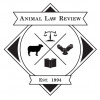Volume Fourteen, Issue Two, Spring 2008
Introduction
OUTSIDE THE BOX: EXPANDING THE SCOPE OF ANIMAL LAW
William R. Cook
Articles
THE JAPANESE DOLPHIN HUNTS: IN QUEST OF INTERNATIONAL LEGAL PROTECTION FOR SMALL CETACEANS
Rachelle Adam
This article sets out to explore the international legal status of those dolphins targeted by the Japanese drive hunts. It is estimated that over two thousand five hundred small cetaceans—dolphins, porpoises and small whales—will be killed as a result, out of a total of over twenty thousand killed annually in Japan by direct catch. It is argued that since we have literally pushed them to the brink of extinction, we have an ethical duty towards dolphins, to stop the cruelty perpetrated against them by man and to ensure the survival of their species. And our ethical duty towards them should be turned into an international legal duty together with a correlated legal right for their international protection. Inseparable from and interwoven with the absolute and devastating cruelty of these hunts and the excruciating suffering of the dolphins, are the implications from a conservationist perspective on the targeted dolphin populations. For like biodiversity worldwide, we are losing cetacean diversity it at a rapid and increasing rate. Writing this article is accompanied by a sense of futility, but also by a great sense of urgency, that if it will be too late this year to stop the carnage and the irreplaceable loss of sentient, intelligent beings who make up an irreplaceable component of Earth’s global biodiversity, action must be finally be taken by international environmental institutions to bring an end to these inhumane practices.
TWO MAJOR FLAWS OF THE ANIMAL RIGHTS MOVEMENT
Geordie Duckler
In its current guise, animal rights advocacy imposes few intellectual demands on its proponents, usually requiring little more than a colorful Web site and a college dictionary, the former to construct an audience, and the latter to provide the emotion-laden phrases needed to inflame that audience into supporting stringent penalties for animal-related crimes. Hard thought is not really essential for animal rights advocates to be able to proclaim an end to animal abuse or an allegiance to easing animal suffering, and the standard advocate toolkit simply need not include “rational legal analysis” among the apparatus utilized to rail against mistreatment, to weigh in with personal anecdote on topical news stories, or to call for increasing fines and jail terms under local criminal statutes.
Trouble brews, on the other hand, for those advocates who aim farther afield, who demand that animals be granted formal legal rights. Graphics and adjectives alone are vastly insufficient to validate just how that project would operate under the law or how science and logic would support a formal position on animals as “rights-holders.” Unhappily, the animal rights movement, as it takes such aim, has shown that it is weaker, not stronger, for the effort. Separate from its vulnerability to criticism by those politically opposed, a call for legal rights for animals is without justification on the very two pillars on which such a claim presumes to found itself”“ the precepts of law and of science. The claim’s inherent weaknesses are revealed in the use of terms that are inapplicable given both the way that legal rules work as a practical matter and the current level of our scientific knowledge about animals themselves. This article confronts these two core defects of the animal rights paradigm and seeks to shed the light of law, science, and reason on what seems to be an unreasonable, nonscientific, and yet ill-critiqued phenomenon.
DOG MEAT IN KOREA: A SOCIO-LEGAL CHALLENGE
Rakhyun E. Kim
This article explores the dog meat debate in Korea from a socio-legal perspective. It first examines the legal status of dogs and dog meat, and the legal protection for dogs under the old and new legislative frameworks. It then discusses socio-legal challenges to banning dog meat in the Korean context, employing examples of both legal approaches taken by other countries and the politics of dog meat in Korea, specifically. The article argues that the controversy over dog meat must be reframed and dog meat be socially redefined in order to protect dogs, which are currently caught in the conflict over their socio-legal status as companion and livestock animals.
Comment
Fatima Merchant
People who read organic milk carton labels likely imagine the cows behind the product grazing in wide-open pastures. While the United States Department of Agriculture’s National Organic Program regulations require in numerous places that cows have “access to pasture,” the Department has not established minimum pasture time for organic cows. The vague language has allowed the traditional vision of small family farms where cows spend their days nibbling on grass to be replaced, in many instances, by corporate-owned farms that resemble feedlots and house thousands of cows. This article discusses the “access to pasture” issue and analyzes the ambiguity that has lead to widely varied farming practices and finished products. The vague language undermines the goals of the National Organic Program and threatens the integrity of the organic seal. This article suggests ways to clarify the standards and offers alternative solutions to the problems facing consumers, organic food advocates, and farmers because of the vague regulations.
Blair McCrory
Animal Law Review is located in Wood Hall on the Law Campus.
MSC: 51
Editor in Chief
Suzannah Smith
eic-animallaw@lclark.edu
Managing Editor
Aaron Kline
me-animallaw@lclark.edu
Executive Editors
Bailey Grinter
Macaela Burke
ee-animallaw@lclark.edu
Animal Law Review
Lewis & Clark Law School
10101 S. Terwilliger Boulevard MSC 51
Portland OR 97219
